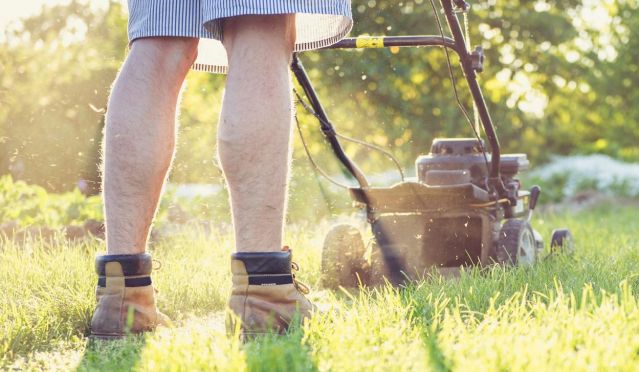Creativity
Self-Reliance Sets the Stage for Creativity and Self-Care
A Personal Perspective: Being forced to rely on yourself can carry lasting benefits.
Updated August 14, 2024 Reviewed by Abigail Fagan
Key points
- Self-reliance is the foundation for creative and critical thinking.
- Self-reliance is often born out of necessity.
- Self-reliance is about self-care and self-trust.

I believe I developed my self-reliance naturally as a survival mechanism because my parents were neglectful and abusive. Mother was always busy pursuing her own goals and needs while Dad was busy trying to keep her happy. I felt like I was intruding on them to have needs at all. I picked up early on not to expect too much from them and that I should handle my own problems to the extent that I was able.
I learned to keep a low profile when Mother was in a bad mood because she was likely to punish me for merely getting in her way. I’d play quietly in my room or go outside when the weather permitted. When she was in a good mood, it was OK to be seen, but frequently I couldn’t tell the difference, so I played it safe and stayed out of her way. The silver lining to being neglected was developing self-reliance.
Many Skills Are Dependent on Self-Reliance
Self-reliance is the ability to take care of yourself without needing help from others. It is being able to make decisions for yourself. Critical thinking, creative thinking, and problem-solving are skills that emerge from a sense of self-reliance.
As I’ve written before, I was bullied by boys older than me both at school and in my neighborhood. After school, if none of my friends were around, I played in my backyard rather than risk running into the older kids on the street. This occurred often enough that I learned to entertain myself. I remember creating elaborate stories for my toy soldiers and cars while I played in my sandbox or tree house. I was practicing self-care, which is also a trait of self-reliance.
My self-reliance grew rapidly when I started wanting money. If I wanted a particular toy like my friends had and I asked Dad for the money (if I asked Mother, she’d tell me to ask Dad), he might say wait until Christmas and your birthday (which came close together on the calendar. (I frequently heard the words, “This is your Christmas and birthday present.”) If I wanted it immediately, he’d suggest I earn the money.
Too Young to Understand
Dad would make suggestions on how I could earn money, but often his suggestions were too difficult for me to engage in at the age I was asking.
For example, when I was nine years old, my father said I should start a lawn mowing business. However, he told me I couldn’t use his lawn mower; I would have to buy my own. He said he would loan me the money for a lawn mower, and I would have to pay that back before I could spend any of my earnings on the thing that I wanted. Buying a lawn mower, finding customers, mowing their grass, and repaying the loan were all too big in scope for me to fathom. Nevertheless, he planted the seed of independence which germinated into all the small businesses I have started over the years.
Sometimes, Dad would offer to split the cost with me, but it was still up to me to earn my half. If it was a small amount of money, he would provide me the opportunity to earn it by washing his car or shining his shoes. These were jobs I could handle.
However, Dad never paid me to mow our lawn or rake leaves. He said those were chores I was obligated to do as part of the family.
My Entrepreneurial Spirit Was Born From Self-Reliance
My financial self-reliance took off when I learned I could make money by collecting returnable soda pop bottles for their deposit. It became my primary source of income as a child, and I would spend some time every day after school walking alongside a highway near my house to find them. I was thrilled when the deposit was increased from 2 cents to 3 cents per bottle—it felt like getting a raise.
When I was 13 years old, Dad would occasionally pay me $1 an hour to pick up trash on his construction sites and burn it in a barrel. When I turned 15, I was old enough to get a real job in a fast-food restaurant (it paid $1.15 an hour which was 72 percent of minimum wage). Once I started earning a regular wage, I started buying many of the things I’d long wanted. I also started paying for stuff my parents used to provide such as clothing.
During this time I noticed that my closer friendships were with boys whose parents were not handing them whatever they wanted. Like me, they had to have a job to get the things they desired.
Suddenly, my Dad started offering me money without my asking. If I was going to the movies with my friends, he would offer to pay for my ticket and refreshments, but I would always decline. It angered me that he was offering only after I didn’t need it.
Self-Reliance Expands From Necessity
Over the years, I continued to build my self-reliance. At age 17, I bought my own car, and because the maintenance was so expensive, I learned how to work on it myself. In the mid-1970s my father lost his business in the recession and couldn’t afford to send me to college, so I paid my own tuition and attended a less expensive school than I originally wanted. At age 19, I had my own apartment and was fully independent and paying for every single need myself.
Self-reliance is personally empowering. It frees you to make the decisions that are best for you. It puts you on an equal footing with other people. They will not have power over you unless you give it to them.
My self-reliance continued to grow after college. When I couldn’t land a job writing for an advertising agency, I used creative thinking and opened my own ad agency. When a doctor told me there was no cure but surgery for a skin growth on my eyelid, I used critical thinking to find an alternative.
My self-reliance led me to a wide variety of experiences and learning opportunities. These are useful for creativity, more specifically for me as an author because they’ve given me a large data set of information to draw on when I want to write an article or story.
Self-Reliance Enables You to Trust Your Abilities
Self-reliance lays the foundation for finding your purpose in life because it fuels self-efficacy (the belief in your own strengths and skills), which in turn enables self-motivation (the ability to achieve your goals). In brief, self-reliance empowers you to trust yourself to make the right decisions for your life.
References
What is Self-Reliance and How to Develop It? https://positivepsychology.com/self-reliance/
"Self-Reliance" by Ralph Waldo Emerson.
An Analytical Study of Self-Reliance https://www.tandfonline.com/doi/abs/10.1080/00223980.1938.9917555




